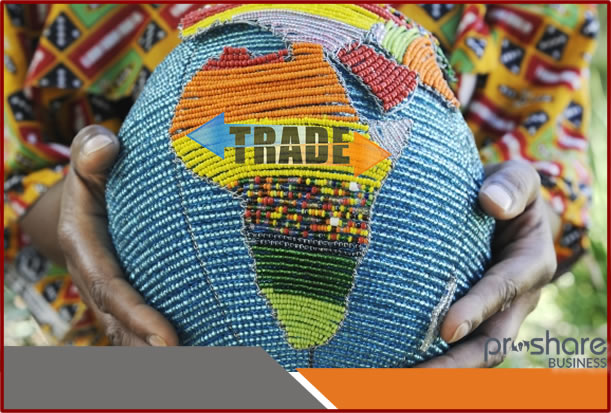Friday, April 27, 2018 7:30PM / PwC
Foreword
Africa,despite its enormous size, still represents only a small portion of worldtrade. Exports are largely commodity based and include oil, coal, iron ore,ferrochrome, precious metals, cocoa, palm oil and timber. Yet, Africa isgrowing and many of its larger economies are beginning to diversify away from atraditional commodity focus. Ports represent the gateways for these commodity exports,but as countries grow and develop, ports are also essential for sustaining andimproving more robust and diverse growth in African economies through theimport and export of manufactured goods and other products.
Portsare a vital part of the supply chain in Africa with each port having afar-reaching hinterland often spanning a number of countries. Ports have thusbecome a natural focus for regional development.
Anumber of global port logistics trends have emerged in the last decades,including the emergence of ‘hub’ ports, which facilitate dominant volumes ofglobal trade in and out of a region. In Africa, the trend is gathering somemomentum but is constrained by lower volumes of cargo relative to other partsof the world, poor port performance, hinterland dominance focused on certainports, and global shipping routings that have not replicated the hub-and-spokemodel more commonly found in other parts of the world.
Othertrends such as improved intermodal facilities, enhanced back of-port logisticsand closer linkages to railway networks are common but are also less welldeveloped than in other parts of the world. A number of corridor-basedinitiatives focused on improving the hinterland flow of goods both by road (thedominant mode) and by improvements in the railway network can be found acrossAfrica and these are tending to focus on the higher-volume ports. Examplesinclude improvements to the Gauteng-Durban corridor, initiatives to enhancetrade between Rwanda, Burundi and Dar es Salaam and between Uganda and Mombasa.In the west similar trends are emerging between the landlocked countries ofMali, and Burkina Faso, and the Ports of Tema, Abidjan and Dakar.
Africa’strade with China is growing. China imports commodities such as oil, iron ore,copper and other metal ores from Africa and as the region has developed, Chinahas benefitted from exporting growing volumes of mostly manufactured products.China has also become a significant investor in African infrastructure projectsand our research has identified increasing opportunities for China to play astronger role in port investments.
Webelieve that the global transportation and logistics industry can no longer affordto ignore developments in Africa and that logistics service providers and portsin particular, will continue to play a key facilitating role in enablingeconomic growth across sub-Saharan Africa.
Globalproduction networks will increasingly drive port efficiency to integrate allcomponents of the global logistics and supply chains. Ports will therefore comeunder increasing pressure to respond to the needs of shipping lines, logisticsproviders and multinational manufacturers as they seek to drive efficienciesthroughout the value chain. Ports investment decisions, which in the past havebeen driven largely by supply-side factors, are likely to be increasinglydictated to by demand-side requirements.
Thereremains a strong case for Africa to focus on investment in ports. Developingport infrastructure ahead of demand, focusing on the ports with the greatestvolume potential (the ‘hub’ ports of the future) and improving their overallfunctioning so that through productivity gains they are increasingly attractiveas destinations for global trade.
Increasedvolumes of trade and more productive and attractive ports will acceleratechanges in global shipping routes serving Africa. As in other parts of theworld, this will lead to increased integration with global shipping and traderoutes, partly through the allocation of larger vessel sizes – reducing transittimes and reducing the unit cost of transport to and from the continent.
Whetheryou represent government, port authority, port operator, shipping line orlogistics provider, we are hoping that our assessment of sub-Saharan ports willhelp you better understand where the greatest opportunities lie in theserapidly changing gateways to Africa. 
KindlyClick to download the full report
Related News
1. How EffectiveWill Africa’s Continental Free Trade Area Be?
2. EIB and AfDB tosupport private sector investment in Nigeria with DBN backing
3. AfDB PledgesFull Support Towards Success of Continental Free Trade Area
4. A Brave StepTowards African Integration
5. Nigeria, ECOWASand the Morocco Question
6. Continental FreeTrade Zone: An Epic Tale of Developing Cold Feet
7. At The Launch ofAfCFTA, Afreximbank Pledges $25 billion over Five Years for Intra-African Trade
8. The Kigali AUSummit: Nigeria’s Diplomatic Blunder
9. Forty-fourcountries Sign Historic African Union Free Trade Agreement
10. The Process AndBenefits To Nigeria Of The Africa Free Trade Area (AfCFTA)
 Lagos, NG • GMT +1
Lagos, NG • GMT +1











 8122 views
8122 views





 Sponsored Ad
Sponsored Ad
 Advertise with Us
Advertise with Us









